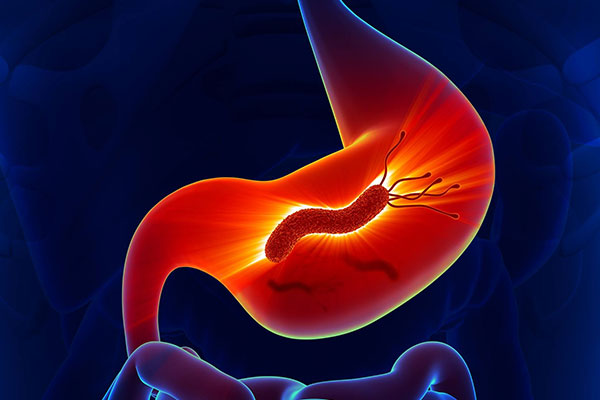How H. pylori can cause gastric cancer?

Helicobacter pylori (H. pylori) is a kind of bacterium which is usually found in stomach and duodenum. H. pylori infection is a very common infection. Around 4.4 billion people are estimated to be infected by H. pylori worldwide while many regions in Asia including Hong Kong show an infection rate over 55%.
Citizens may pick up the infection in several different ways. The bacteria can be found in contaminated food or water. People may be infected from mouth-to-mouth contact with anyone who has it. Medical studies indicate the presence of H. pylori in food samples. Asian people are more likely to get infected than the westerners since they often share the meal as a common “family style.” Otherwise, people can also get it if they come into contact with body fluid or faeces of infected person.
H. pylori can inflame the stomach lining and make the patient feel stomach pain or get nauseous. If left untreated, the long-term carriage of H. pylori will significantly increase the risk of developing chronic gastritis, gastric or duodenal ulcer. The infection is associated with as many as 90% of duodenal ulcers and 70-75% of gastric ulcers.
Although the link between H. pylori infection and stomach cancer was a matter of debate for many years, research has found that people with severe chronic atrophic gastritis have an increased risk of developing stomach cancer compared to the uninfected individuals.
In Hong Kong, stomach cancer was the sixth commonest cancer in Hong Kong in 2015. The male to female ratio was about 1.4 to 1. It was the fourth leading cause of cancer deaths in Hong Kong. Common symptoms of stomach cancer include indigestion, upper abdominal pain, nausea, vomiting with blood-stained vomitus, loss of appetite, weight loss, and fatigue. For those who have these symptoms, they are adjusted to seek medical attention and undergo gastroscopy.
To prevent or lower the risk of stomach cancer, your doctor may suggest you having a balanced diet with plenty of fruits and vegetables, avoiding drinking alcohol, reducing consumption of processed meat or foods preserved by salt, and having regular physical activities.
For H. pylori-infected patients, the doctor will prescribe triple therapy which consists of an acid suppressor and two to three antibiotics. After the patient has finished the antibiotics, the doctor can test for H. pylori to make sure it is gone.
*The above information is for reference only, please consult your doctor for detail.

 3405 8288
3405 8288
